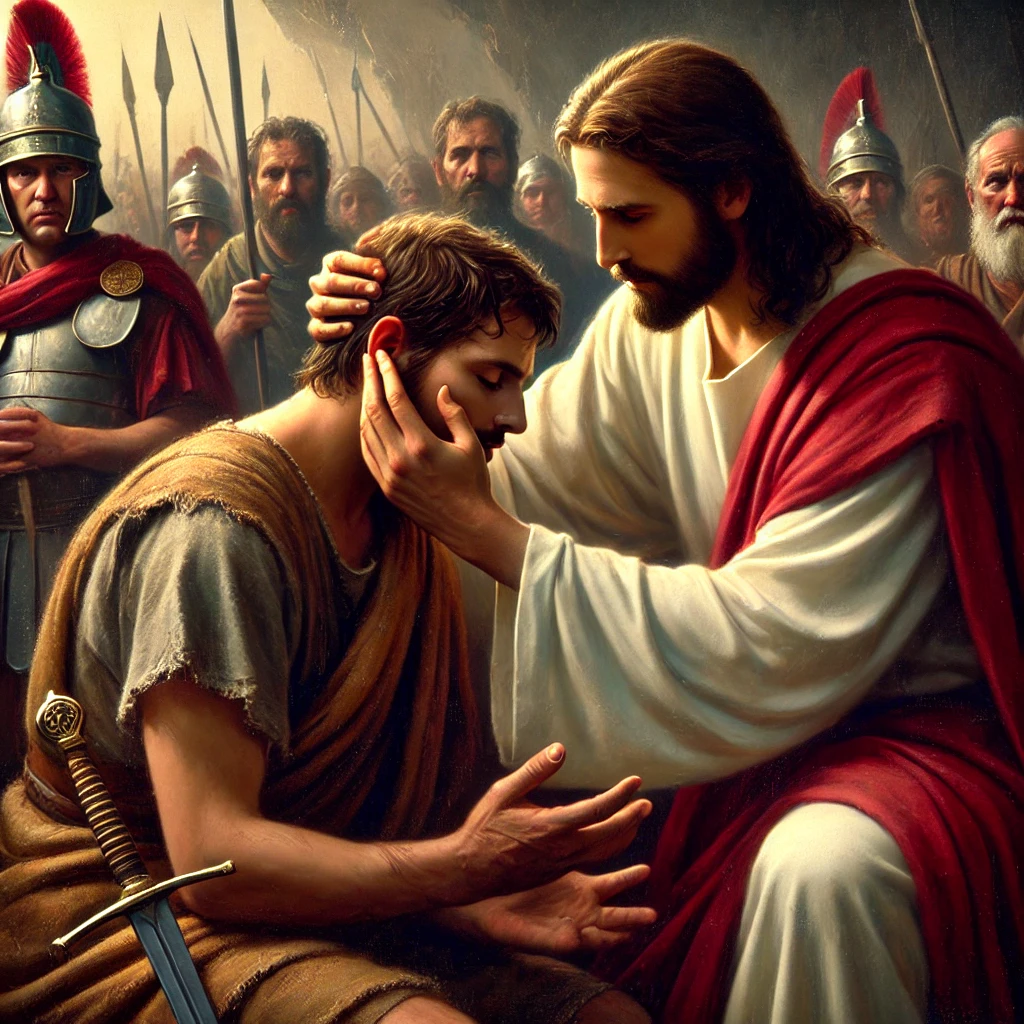Forgiveness—it’s one of those things that sounds simple in theory but can feel impossible in practice. We know it’s important, and we’ve all heard the phrase “forgive and forget,” but really, who’s just going to forget? The good news is, you don’t have to. Forgiveness isn’t about wiping the slate clean but about letting go of the burden it puts on you. And in that release, you’ll find the peace you’ve been looking for.
Jesus taught forgiveness. So did Buddha. And guess what? Many of the greatest teachers throughout history have emphasized the importance of letting go to live a more peaceful, fulfilling life. So, let’s break it down and see what they had to say—and why their wisdom might just be the key to living your best life.
What Jesus Taught About Forgiveness

If you’re familiar with Jesus’ teachings, you already know forgiveness is central to his message. When Peter asked Jesus how many times we should forgive someone who wrongs us, Jesus replied, “I tell you, not seven times, but seventy-seven times” (Matthew 18:22). In other words, forgiveness isn’t a one-time event. It’s a mindset, a way of living.
When Jesus taught the Lord’s Prayer, he specifically included the line, “forgive us our debts, as we also have forgiven our debtors” (Matthew 6:12). The catch? Forgiveness is a two-way street. To be forgiven, you need to forgive. It’s about releasing yourself from the resentment that keeps you chained to the past.
One of the most profound examples of Jesus’ teaching on forgiveness occurred on the very night he was arrested. As the mob arrived to arrest him, Peter, one of Jesus’ disciples, drew his sword and cut off the ear of a man named Malchus, a servant of the high priest (John 18:10). Now, at this moment, Jesus had every right to be filled with anger or resentment. After all, he was being arrested and charged despite being completely innocent. It would’ve been easy to let the man walk away injured, serving as a symbol of the injustice.

But what did Jesus do instead? He immediately stepped forward, rebuked Peter for his actions, and, in a stunning act of grace, touched the servant’s ear and healed him (Luke 22:51). In the face of betrayal and false accusations, Jesus chose compassion over bitterness. He made the man whole again, even though that same man was part of the group that would lead him to his unjust death.
Key Lessons From Jesus on Forgiveness:
- Forgiveness is limitless.
- It frees you as much as it frees the other person.
- Forgiving others brings you closer to God.
Buddha’s Take on Forgiveness and Inner Peace

Buddha had a lot to say about forgiveness, too, and his teachings focus heavily on inner peace. One of his most famous quotes is, “Holding onto anger is like drinking poison and expecting the other person to die.” Ouch. But so true, right? When we don’t forgive, we’re really the ones who suffer.
Buddhism teaches that everything is interconnected. Anger and resentment cloud our minds, preventing us from experiencing clarity and peace. Forgiveness, on the other hand, helps to clear the fog, leading to a more peaceful existence.
The Four Noble Truths of Buddhism, which are foundational to Buddhist teachings, emphasize that suffering is a part of life, but we can overcome it by changing our mindset. One of the most effective ways to do this is through forgiveness. By letting go of resentment, we free ourselves from suffering and open the door to inner peace.
Key Lessons From Buddha on Forgiveness:
- Holding onto anger harms you more than anyone else.
- Forgiveness is essential for clearing the mind and finding peace.
- Inner peace begins when you let go of resentment.
Forgiving Yourself: The First Step to True Forgiveness

We often talk about the importance of forgiving others, but what about forgiving yourself? We all make mistakes—sometimes big ones that hurt others, lead to broken relationships, or take us down paths we never intended. When we’ve wronged others or made poor decisions, it’s easy to fall into the trap of self-condemnation, replaying our mistakes over and over. But here’s the truth: to truly understand and show forgiveness to others, you must first learn to forgive yourself.
Self-forgiveness is a fruit of the good spirit, rooted in self-love and humility. It’s about acknowledging where you’ve gone wrong, making amends, and releasing the guilt that no longer serves you. When you forgive yourself, you open the door to a deeper form of healing that allows you to practice forgiveness outwardly. Others will often pick up on this, too. When they see you walk in humility—accepting your flaws and showing yourself grace—it encourages them to do the same.
By forgiving yourself, you model the process of redemption, demonstrating that it’s possible to move beyond mistakes and still live a life filled with love and compassion. It’s a powerful expression of self-love, and through this practice, you invite others into a space of forgiveness. You’re showing that we don’t have to be perfect to be worthy of love, grace, and second chances. And through this humble self-forgiveness, you may find that others are more willing to practice forgiveness as well—toward themselves and toward those around them.
How Forgiving Those Who Hurt You Leads to Everlasting Life
Forgiving those who have spitefully hurt you is, without a doubt, one of the hardest things you’ll ever have to do. It’s tempting to hold onto that pain, to let it fester and grow, especially when the wounds are deep and intentional. But harboring resentment only leads to a slow death within your soul. Over time, the bitterness weighs you down, draining your peace, joy, and spirit. It eats away at the vibrant life you’re meant to live.
However, when you choose to forgive—even in the face of deep, intentional hurt—you’re not just letting go of anger, you’re choosing life. Forgiveness breathes life back into your soul, allowing you to walk in peace, purpose, and joy. It’s like shedding a heavy, suffocating cloak and stepping into the light. You unlock the potential for life everlasting, not just in a spiritual sense, but here on earth, where you can fully embrace love, compassion, and the beauty of life around you.
By forgiving, you’re not excusing what was done to you; you’re freeing yourself from the chains that hold you back. Forgiveness isn’t just for the one who wronged you—it’s a gift you give yourself, one that leads to a more fulfilling and peaceful existence. It’s the ultimate act of self-liberation, a key to truly living the life you deserve.
How Forgiveness Leads to Inner Peace
So why does forgiveness bring peace? Simple: it removes the emotional baggage that weighs you down. Anger, resentment, and bitterness are all heavy emotions. They consume your thoughts, drain your energy, and keep you stuck in a negative loop. When you forgive, you release these emotions, making space for peace, joy, and clarity.

Think of forgiveness like decluttering your home. You know how good it feels when you finally get rid of all that stuff you don’t need? It’s the same with forgiveness. Once you clear out the emotional junk, you create space for better things to enter your life.
Here are a few ways forgiveness can improve your life:
- Better Relationships: Forgiveness strengthens relationships by clearing out the negative emotions that cause conflict.
- Improved Mental Health: Studies show that people who forgive experience lower levels of anxiety and depression.
- Physical Health Benefits: Holding onto anger and resentment can raise your stress levels, leading to high blood pressure, headaches, and even a weakened immune system. Forgiveness lowers stress, which improves your overall health.
- Spiritual Growth: By forgiving, you align yourself with the teachings of Jesus, Buddha, and other great spiritual leaders. You grow in wisdom and compassion, which brings you closer to your higher self.
Living a More Peaceful, Fulfilling Life Through Forgiveness
At the end of the day, forgiveness is about freeing yourself. It’s not about condoning bad behavior or pretending everything’s okay. It’s about releasing the emotional burden that’s keeping you stuck and allowing yourself to move forward in peace.
Jesus, Buddha, and countless other teachers understood this universal truth: forgiveness is the key to inner peace. By practicing forgiveness—both toward others and yourself—you’ll find that life becomes more peaceful, relationships become more fulfilling, and the weight of the world feels just a little bit lighter.
Let’s reclaim what is rightfully our’s in this digital noise we live in. Join us in this exploration of how deep the rabbit hole actually goes.

No responses yet